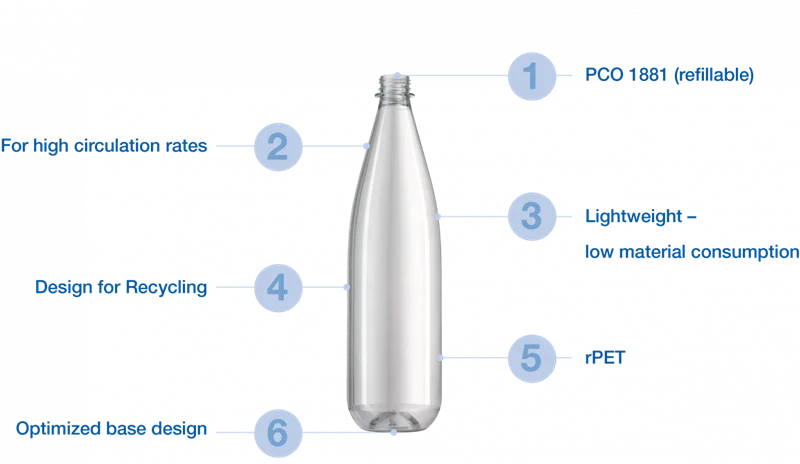1. What are PET Preforms?
- Definition:
Explain that PET preforms are intermediate plastic products, essentially miniature vials, that are blown into finished plastic bottles. - Manufacturing Process:
Describe the injection molding process, including heating the PET resin, injecting it into a mold, and cooling it to create the preform shape. - Key Features:
Highlight the different neck sizes, weights, and shapes of preforms and how they vary based on the final bottle application.
2. Applications of PET Preforms:
- Beverage Industry:
Discuss how PET preforms are widely used for packaging water, soft drinks, juices, and other beverages. - Food Industry:
Explain their use in packaging edible oils, sauces, and other food products. - Cosmetics and Personal Care:
Highlight their role in packaging various cosmetic and personal care items. - Pharmaceuticals:
Detail their use in packaging medications and other healthcare products.
3. Sustainability and PET Preforms:
- Recycling:
Emphasize the recyclability of PET and how preforms contribute to a circular economy. - rPET Integration:
Explain how recycled PET (rPET) can be incorporated into preform manufacturing, reducing reliance on virgin materials. - Eco-Friendly Packaging:
Discuss the environmental benefits of using PET preforms compared to other packaging materials.
4. Choosing the Right Preform:
- Weight and Size:
Explain how the weight and size of the preform are determined by the final container's capacity and intended use. - Neck Finish:
Discuss the importance of neck finish compatibility with the cap and closure system. - Transparency and Quality:
Highlight the need for high clarity and quality, especially for beverage bottles.
5. PET Preform Testing and Quality Control:
- Perpendicularity Testing:
Explain how preform perpendicularity is tested to ensure the final bottle is correctly aligned. - AA Level Testing:
Discuss the importance of keeping acetaldehyde (AA) levels low in preforms and the use of AA blockers. - Quality Control Processes:
Detail the various quality control measures taken during preform manufacturing to ensure high standards.
6. Trends and Innovations:
- Lightweighting:
Discuss the trend of using lighter preforms to reduce material consumption and transportation costs. - Design Innovations:
Explore how new preform designs are being developed to enhance functionality and aesthetics. - Advanced Manufacturing Techniques:
Highlight the use of modern, high-speed injection machines in preform production.
By covering these topics, a PET preform blog can provide valuable information to a wide audience, including those in the packaging industry, businesses using PET preforms, and consumers interested in sustainable packaging options.


